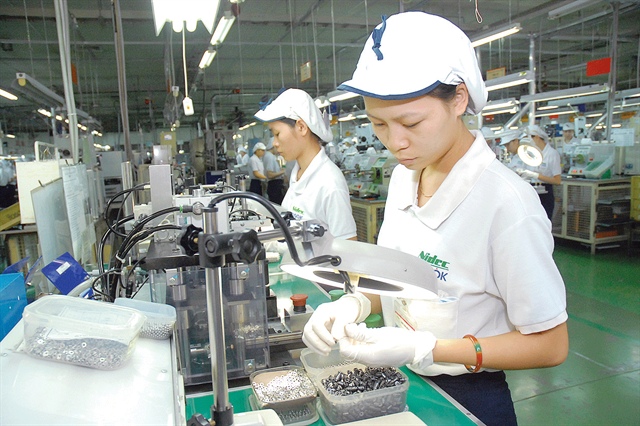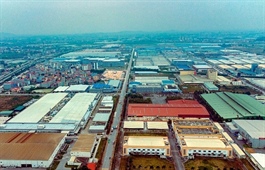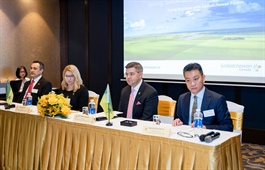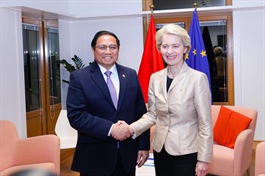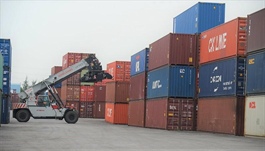Screening proposed for improved foreign investment
Screening proposed for improved foreign investment
Foreign direct investment (FDI) has contributed significantly to the Vietnamese economy since the Law on Foreign Investment in Vietnam was promulgated in 1987. However, Vietnam is mulling effective screening tools to enhance FDI quality.
Pending problems
According to the Vietnam Chamber of Commerce and Industry (VCCI), Vietnam has attracted FDI for 35 years and become an attractive destination to foreign investors. In 1991, US$1.28 billion of foreign investment was registered in Vietnam, of which US$428.5 million was disbursed. In 2021, the registered and disbursed amounts increased respectively by 30 times and 38 times compared with 1991, despite the heavy impacts of the COVID-19 pandemic.
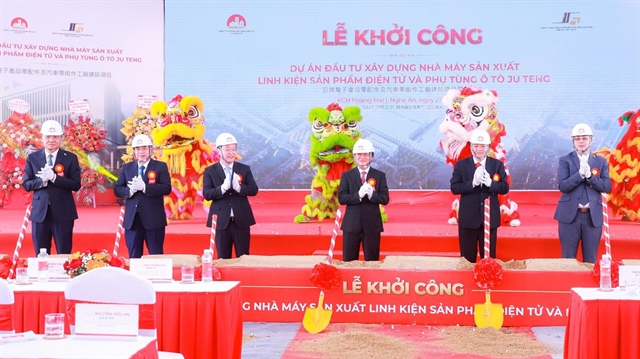
The groundbreaking ceremony for an electronic component manufacturing project of the Everwin Precision Vietnam Technology Co., Ltd. |
Foreign invested companies have contributed significantly to employment generation, international trade promotion, sector and value chain linkages, helping increase labor productivity. The FDI sector contributes about 72 percent to Vietnam’s total export value.
Despite these positive contributions, according to Dau Anh Tuan, Head of VCCI’s Legislation Department, certain problems have arisen with FDI projects. Tax authorities, for example, have reported the involvement of some FDI companies in transfer pricing and tax evasion.
Some companies have failed to adhere to environmental laws and regulations. The results of inspections conducted by the Vietnam Environment Administration in 28 northern provinces from 2017 to 2019 show an increased percentage of FDI companies violating environmental regulations, from 44.5 percent in 2017 to 56 percent in 2018 and 68 percent in 2019.
Moreover, according to a VCCI study, only five percent of FDI projects use high technology, 80 percent use medium technology, and 14 percent use low technology. The local content of products ranges from 20-25 percent, lower compared with other countries in the region.
|
Institutional and policy improvements
Given the FDI sector’s problems, economists are considering how to attract quality investors with responsible business orientations.
Politburo Resolution 50-NQ/TW dated August 20, 2019 on institutional and policy improvements for better quality and higher effectiveness of foreign investment pointed out these limitations of the FDI sector. The resolution highlighted the need to carefully select projects based on quality, technology level and environmental impact. The resolution called for prioritizing projects using advanced and clean technology, creating high added value and connecting Vietnamese businesses to global production and supply chains.
According to Ramla Khalidi, the United Nations Development Program (UNDP) representative in Vietnam, other countries apply various criteria in licensing foreign investment. The EU, for example, applies a code related to the environment and humans; Japan is assessing the enforcement of human rights in businesses; the US forbids imports from enterprises involved in labor exploitation.
VCCI and UNDP recently introduced a set of tools for screening FDI projects in Vietnam. The tools include assessment of investment based on factors such as employment generation, technology transfer, infrastructure development, linkages with local businesses, labor, and environmental impact. The screening tools are expected to help improve the quality and effectiveness of FDI in Vietnam.
| VCCI and UNDP are cooperating to create a set of screening tools to help Vietnamese localities select quality FDI projects. |


